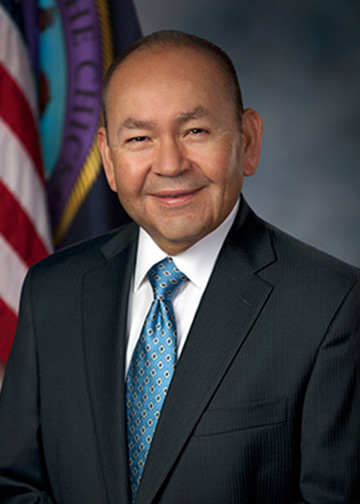
Governor Bill Anoatubby
Chickasaw Nation Constitution secures the rights of our people
By Bill Anoatubby, Governor, Chickasaw Nation
As we celebrate the thirty-fifth anniversary of the new Chickasaw Constitution ratified in 1983, we have an opportunity to contemplate the importance of that milestone in our history.
Government is such a constant presence in our world that few give much thought to the reason governments exist and the core purpose they serve in our society.
Nevertheless, the views of the founders regarding the purpose of government are spelled out in the Declaration of Independence.
It is very likely the following phrase from that historic document will sound familiar.
“We hold these truths to be self-evident, that all men are created equal, that they are endowed by their Creator with certain unalienable rights that among these are life, liberty and the pursuit of happiness.”
Those powerful words take on even greater meaning when followed by the next phrase - “that to secure these rights, governments are instituted among men.”
That phrase outlines what the founders of the United States saw as the fundamental purpose of government.
While governments take a wide variety of actions and perform numerous functions, their primary reason for being is to protect the rights of their citizens.
Our 1983 Chickasaw Constitution is the framework for a representative government that works to secure the rights of the Chickasaw people as an integral part of our mission to enhance the overall quality of life of the Chickasaw people.
A long history of treaties and other agreements between the Chickasaw Nation and the federal government has established a special government-to-government relationship between the United States and the Chickasaw Nation.
That trust relationship affords the Chickasaw people certain rights, which we have a responsibility to protect through our constitutional government. The Chickasaw people have rights to federally funded health care, housing, education and other services based on that trust relationship.
We work to secure those rights through compacts and contracts that enable us to effectively deliver those federally-funded services.
In 1994, the Chickasaw Nation became the first Native American tribe to compact with the federal government to assume responsibility for operation of our own health care system.
By establishing this compact with the Indian Health service, we protected the rights of Chickasaws to receive federal funding for health care, while also laying the groundwork for improving the quality of health care services.
The Native American Housing and Self Determination Act is another example of our government working to protect the rights of Chickasaws. Under NAHASDA, the federal government provides funding for housing, while we administer those funds in a manner that offers more effective services.
Many of the legal actions we have taken in recent years are also based on our responsibility to protect the rights of Chickasaw people. The federal government has a trust responsibility to Native American tribes in regard to lands, financial assets, water and other resources.
In addition to those general responsibilities, the Chickasaw people have certain specific rights arising from our treaties.
The historic water settlement between the Chickasaw and Choctaw Nations, the state of Oklahoma and Oklahoma City is a result of legal action taken to protect our rights to manage water resources in our treaty territory.
Our recent settlement agreement regarding federal government management of timber and other assets on tribal trust lands is another example of our constitutional government taking legal action to protect the rights of our citizens.
Our mission to enhance the overall quality of life of the Chickasaw people includes a solemn responsibility to secure the rights you have as citizens.
We work every day to ensure we meet that responsibility.